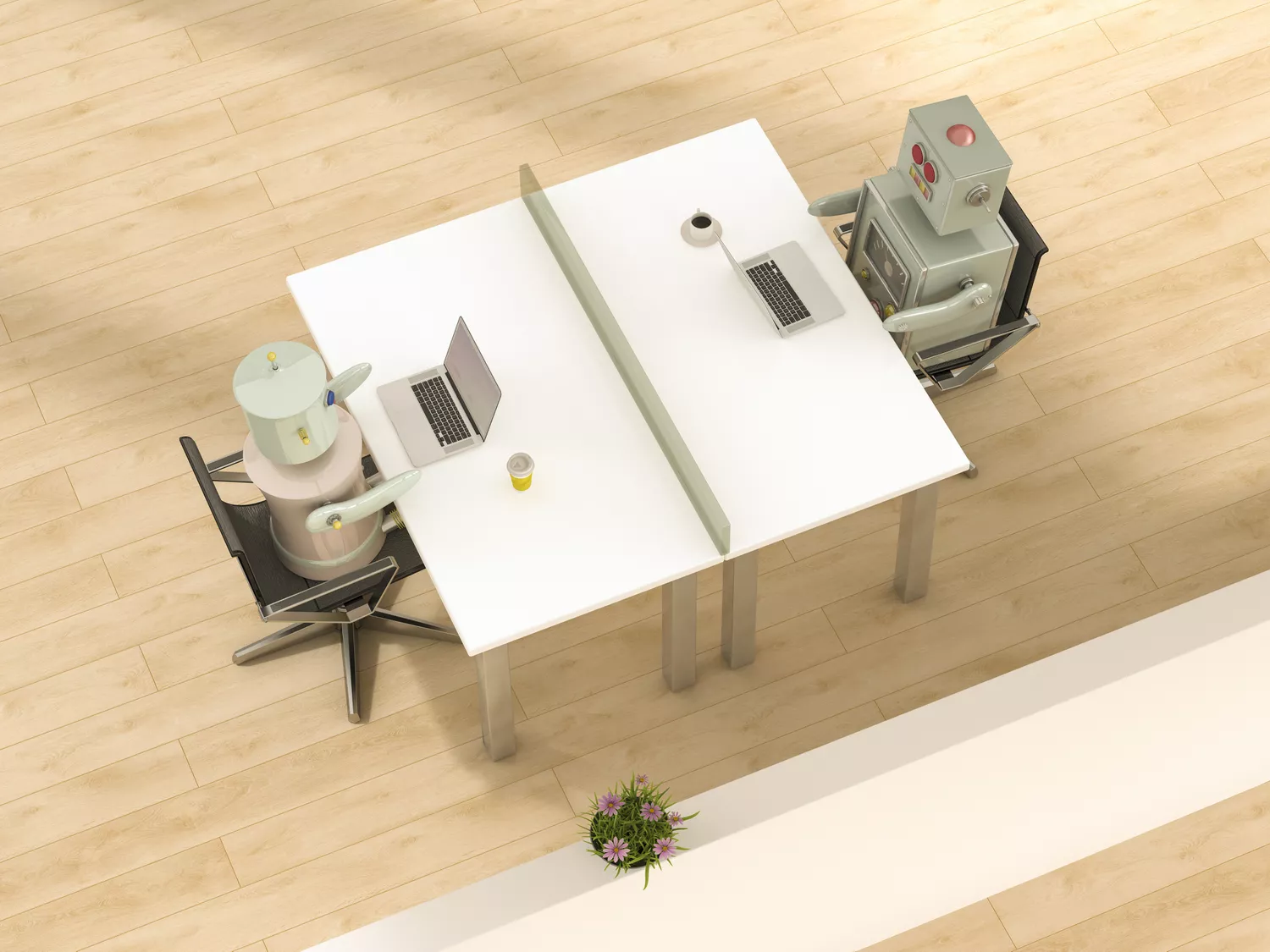
Are you in risk of losing your task to automation? According to a research study by the consulting company McKinsey & Company, roughly one in three U.S. employees might cede a few of their jobs or entire jobs to robotics and other artificial intelligence by 2030.
Companies are anticipated to rely significantly on computers to do jobs that people currently carry out. About half of all workers’ jobs might end up being automated using today’s innovation. Because computers are generally more economical, less susceptible to error, and more skilled in some locations than human employees, it’s clear that the future of work will progressively include robotics.
While this may sound alarming, the research study highlights that the majority of human tasks will change rather than disappear entirely. What does this mean for you and the future of your task? How can you prepare for the increase of robotics in the workplace? Ensure you know what tasks and skills are likely to be taken control of by automated workers and broaden your ability so you can carry out jobs that robots can not.
Which Jobs Will Robots Take Over?
Rest assured that numerous tasks will continue to exist even as jobs end up being more automated. McKinsey finds that less than 5% of tasks are most likely to be entirely taken over by robotics and other computers.
Instead, computers will take control of particular tasks that they can complete more effectively or cost-effectively than people. These consist of foreseeable or repeated work, physical tasks, device operation, and information processing and collecting. Artificial intelligence is changing lots of markets and will have a considerable impact on health care professions, for instance.
Individuals throughout all levels of education and at all stages in their professions will see some of their jobs taken over by computer systems. Nevertheless, these changes will affect certain markets more than others. Some sectors that are most likely to experience a steep increase in automatic workers consist of the following:
Building and construction
The bright side is that construction tasks are growing due to today’s increased demand for brand-new structures, improved highways, and other facilities advancement. Some building tasks are ideal for robotics. These consist of any foreseeable physical labor, such as construction equipment operation, demolition, and basic installation and repair of materials.
Jobs and jobs that require more knowledge, including intricate setups and repairs, and construction website management, will likely not be replaced by robotics any time soon.
Food Service
Computers can assist customers location orders and make payments. They can also perform basic repetitive tasks in the back of the house, consisting of dishwashing and even some food prep.
People will continue to fill food service jobs that involve creativity and ability (like chefs and cooks, particularly at fine dining restaurants) and human interaction (like waiters at dining establishments that stress customer service). Management positions, too, will still require genuine people with strong supervisory skills.
Production
Robotics have actually had an existence in producing for years, led by the car market. That existence is broadening quickly as innovation improves and costs of robotics drop. Numerous jobs in production (including assembler, producer, machinist, and more) involve finishing repeated, foreseeable tasks. Makers are already taking control of at least some portions of these jobs, and that trend will likely continue.
Office Administration
People who work in administrative and office assistance carry out lots of duties that might be taken control of by computer systems– and in many cases, they currently have been. Jobs such as reserving appointments, responding to simple phone calls, entering information, and producing reports are the kinds of foreseeable tasks computers can do, or may quickly be able to. Administrative tasks vary from secretaries to paralegals to office supervisors, and a lot of them still involve human qualities that will most likely be hard to automate.
Retail
Lots of big-box retail chains have actually already automated some jobs. Robotics and other computer systems are starting to be utilized for basic jobs like equipping shelves, examining inventory, and cleaning aisles.
Beyond these industries are lots of other jobs that are most likely to be increasingly changed by computer systems, including shipment services, bank tellers, insurance coverage underwriters, and more.
Which Jobs Are Safe?
Particular tasks can not yet be reproduced especially well by a computer. Computer systems can not reveal empathy or communicate with individuals in the way human beings can. Tasks that include caring for others (including nurses, psychologists, teachers, social workers, and more) are normally safe from automation.
Any position that requires straight managing other individuals will likely also prevent automation. That is because robotics and computers do not have the psychological intelligence and skills to supervise humans (at least for now). Jobs that include imagination– writers, artists, graphic designers– are likewise less likely to become automated.
While lots of tasks that involve predictable work will become automated, this is not the case for work in unpredictable environments. Tasks that take location outdoors (such as gardening) or tasks working with unpredictable populations (like young kids) will be more difficult to automate.
Any task that requires substantial education and/or knowledge is also less likely to be taken control of by robotics. Keep in mind, however, that specific tasks within each of these jobs could still be automated. The human touch of nurses and medical professionals will remain vital, for instance, but computers might significantly be used to read X-rays and diagnose clients.
How to Prepare for Automation
Do not let this info scare you or cause you to drop whatever and quit your job. There are lots of steps you can require to make sure job security in a significantly automated world.
Pick up brand-new abilities: Take the time to develop skills that robots can not carry out. Develop your problem-solving ability, your management skills, your creativity, and your psychological intelligence. If you can highlight these skills, you will make yourself a vital member of any group (and an employee not quickly changed by a computer system).
Go back to school: Jobs that require more education are less likely to be changed by robots, in part because it would take too much time and energy to teach all of that details to a computer system. Going back to school to focus on a specific topic associated to your task is a fantastic method to make yourself vital. Consider how to alter professions without going back to school or discover a short-term training program to broaden your skillset.
Practice versatility: While you might not lose your job to a robot, you might see a change in your daily tasks. Prepare to eventually work together with more computer systems and robotics than you do now.
Sign up with the robots: With the increase in automation will also come brand-new job opportunities. For instance, individuals will need to establish, construct, fix, and oversee computers in the work environment. If you are interested in computers and robotics, consider a profession in which you would work alongside them.
Do not fret: Keep in mind that the McKinsey report mentioned that a lot of jobs will not be lost to robotics– rather, lots of tasks may alter. There is no requirement to leave your present job out of fear that one day you will be replaced by a device.



